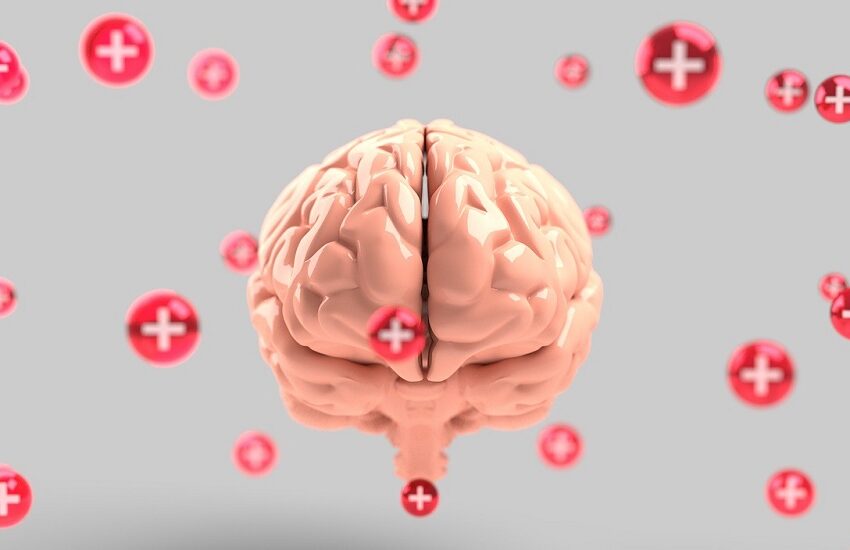Neuropsychiatry is a branch of psychiatry that focuses on conditions that cross over into both the brain and the mind. Neuropsychiatric illnesses are difficult to diagnose and treat because of their complexity and lack of understanding. Physical damage, psychological disorder, or unknown development, or side-effects from medications used to treat other conditions are all possible causes of neuropsychiatric diseases.
What are Neuropsychiatric Disorders?
Cognitive deficits, seizures, excessive aggression, migraine headaches, concentration difficulties, and various types of palsy are all common neuropsychiatric disorders and treatments. Treatment options for attention deficit hyperactivity disorder, another frequent neuropsychiatric condition, are plentiful (ADHD). ADHD in youngsters is still a mystery, but its symptoms have been well-documented and its causes are still a mystery. Children with attention deficit hyperactivity disorder (ADHD) have a hard time concentrating, staying focused, and remembering new knowledge. Adult narcoleptics are commonly prescribed stimulant-type medications to treat ADHD. An further example of a neuropsychiatric disorder is depression, which has a number of physical symptoms.
Many of these illnesses are now being studied in more depth by researchers in the field of neuroscience. Improved diagnosis, treatment selection, and intervention development are all possible outcomes of these advancements. We are learning more and more about the origins and pathophysiology of neuropsychiatric illnesses because to advances in neuroscience and related disciplines of research. Together with improved diagnostics, this has resulted in a greater emphasis on illness prevention and early intervention, rather than merely treating symptoms. Patients’ risk and resilience profiles, needs and aspirations are better met by novel therapy modalities such as RNA therapies and neurorobotics, as well as creative psychotherapeutic and pharmaceutical techniques.
Scope of Advancement and Research
Drugs that are more effective and have fewer negative effects than current treatments are urgently needed. These medications do not provide a long-term cure, and patients are likely to relapse multiple times in their lives. In terms of long-term prognosis, unpleasant symptoms and cognitive deficiencies are regarded to be the main obstacle. The vast majority of patients will be permanently disabled as a result of their treatment. There is a pressing need for new and better medicines.
Many hospitals and clinics are now emphasizing a wide range of treatments, including conventional, complementary, and experimental, that aren’t normally seen at other facilities. Neuromodulation is often used in conjunction with cognitive rehabilitation, cognitive enhancers, and a comprehensive behavioral health plan that includes specific nutrition requirements and heart-rate variability training, as well as a reduction in stress in order to treat cognitive issues. A range of neuropsychiatric diseases, such as OCD, as well as chronic pain and fatigue, are treated with similar combination therapy.
Treatment Methods for Neuropsychiatry
The following are some of the treatments and consultation options available:
- Rehabilitation for Neurocognition
Patients admitted to the cognitive rehabilitation program are assigned to a module based on their major kind of cognitive impairment, such as Attention, Working Memory, and Executive System Impairment. A combination of remedial, adaptive, and compensating interventions will be used to treat each patient with this type of cognitive dysfunction.Neuromodulation
Neuromodulation is frequently used in conjunction with cognitive and language therapy. Neuromodulation is becoming more popular as a therapeutic option for neuropsychiatric and mental health illnesses’ cognitive, behavioral, and psychiatric symptoms and deficits.
Invasive methods such as deep brain stimulation and electroconvulsive therapy (ECT) are used, as well as non-invasive techniques such as transcranial direct current stimulation (tDCS), neurofeedback, and repetitive transcranial magnetic stimulation (rTMS).
- Therapy for Speech and Language
Speech and language therapy aims to improve speech as well as language comprehension and expression. Speech therapists at Major Caregivers can help children and adults with neuropsychiatric and mental health illnesses identify speech impediments and improve speech and language abilities.
- Interventions in Behavioral health
Behavioral health interventions aim to improve cortical and cognitive performance by changing or adjusting a patient’s lifestyle, such as food and implementing particular exercise routines.
- Pharmaceuticals and dietary supplements
To treat the cognitive, neurobehavioral, and neuropsychiatric impairments and symptoms of neuropsychiatric and mental health problems, healthcare practitioners employ a variety of drugs.
Why Is It Difficult to Discover New Drugs for Neuropsychiatry?
There are 31 percent more years spent with incapacity due to mental illness than any other disease in the globe. Despite advances in our understanding of the biology of mental diseases, no new medications or improved therapy have been created in the last several decades. Quite a few of the medicines found so far have been the result of pure chance. This is mainly due to the fact that brain tissue samples cannot be gathered in the same manner as for other organs of the body, such as cancer, where biopsy samples can be easily obtained. When it comes to developing novel neuropsychiatric medications, experts have no idea where to begin.
Neuropsychiatric Implications of COVID-19
Large-scale economic and societal damages have been caused by the coronavirus disease 2019 (COVID-19) pandemic. The most common initial complaint of COVID-19 patients is respiratory insufficiency, but neurological and psychiatric symptoms such as headache, hyposmia/anosmia, and neuromuscular dysfunction, as well as stroke, seizure, encephalopathy, and altered mental status are also frequently reported, both in the acute and long-term phases. Because of these neuropsychiatric consequences, COVID-19 patients’ clinical results and prognosis may be worsened, therefore contributing to their death. Atypical neuropsychiatric symptoms, such as delirium, confusion, and neurocognitive abnormalities, are also frequently observed in COVID-19 patients, in addition to the usual fever and cough. These neuropsychiatric symptoms further delay and hamper diagnosis and treatment, which has both short- and long-term effects on the health of the community.
In COVID-19 patients with neuropsychiatric symptoms, early brain imaging and neurochemical testing are vital for prompt therapies that can improve clinical results. Neuroimaging and biomarker analysis are crucial in the clinical evaluation and diagnosis of brain damage and neurological diseases. For COVID-19 patients with neuropsychiatric symptoms, we discuss recent findings on neuroimaging, electroencephalography (EEG), and neurochemical biomarkers.
